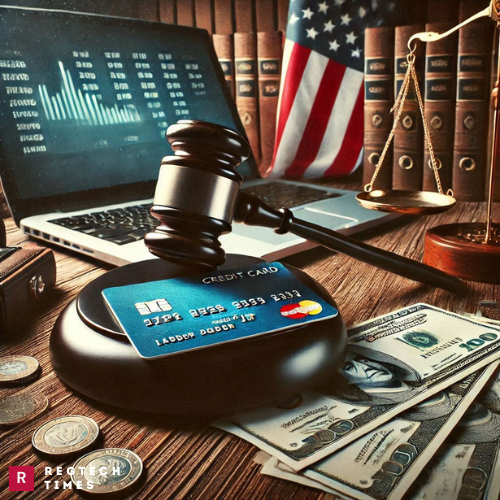A man from Utah has been sentenced to 57 months in prison for his involvement in a massive credit card fraud scheme that stole millions of dollars. Timothy Gibson, 48, from Lehi, Utah, was found guilty of cheating credit card companies and banks. The fraud schemes took place in New Jersey and Utah, and he used fake businesses and false personal information to carry out his crimes. The court sentenced him to serve time in prison, pay restitution, and follow three years of supervised release after his sentence.
The Credit Card Fraud Scheme
Timothy Gibson was part of a large group of people who carried out a complex credit card fraud. The group tricked credit card companies into giving out cards by using fake information. They convinced people to sign up as “straw applicants,” which means they were not actually going to use the credit cards. Instead, these people gave their personal details to Gibson and his team, who then opened credit cards in the names of made-up businesses.
Once they had the credit cards, they used them to make fake purchases. These purchases were designed to earn reward points, like points for travel or cashback. But the purchases weren’t real—they were just numbers entered into the system to get those reward points. After earning the points, Gibson and his conspirators would cancel the purchases before they had to pay for them.
This scam was huge. In total, they opened over 8,000 fake credit card accounts in the names of more than 1,500 people. The group earned more than 800 million reward points, which were worth over $8 million. This large-scale fraud cost credit card companies and businesses a lot of money.
False Statements to Obtain Loans
In addition to the credit card fraud, Gibson was also involved in a different crime. In 2020, when the COVID-19 pandemic hit, the government created a program called the Paycheck Protection Program (PPP). The goal of the program was to help small businesses keep their workers employed during the crisis by providing loans. To get these loans, businesses had to prove they had employees and a certain amount of payroll.
Fraud Uncovered: McPhee and Posey Accused of $8M Investment Scam
However, Gibson took advantage of the situation. In May 2020, he made false statements to a bank in order to get a PPP loan for a business he was connected to. He lied about how many employees the business had and how much the business paid its workers. By giving this false information, he was able to receive money from the PPP program, which was meant to help struggling businesses.
Gibson didn’t stop at his own loan. He also advised other businesses on how they could lie to get PPP loans. His actions hurt the PPP program, which was meant to support small businesses in a time of need.
Legal Actions and Sentencing
Gibson’s crimes didn’t go unnoticed. He was caught and charged with conspiracy to commit wire fraud for his role in the credit card scam. He also faced charges for making false statements to a bank regarding the PPP loan. In court, he admitted to his involvement in these schemes.
As part of his sentence, Gibson will serve 57 months in prison. This is just under five years. After his prison time, he will be on supervised release for another three years. This means that he will be monitored to make sure he follows the law. On top of the prison sentence, Gibson will also have to pay restitution, which is a way of compensating the victims of his fraud.
The case was investigated by special agents from the IRS-Criminal Investigation and postal inspectors from the U.S. Postal Inspection Service. These agencies worked together to catch Gibson and his conspirators. The U.S. Attorney’s Office handled the case and was responsible for bringing the charges against Gibson.
Timothy Gibson’s sentence sends a clear message that those who commit fraud and deceive others for personal gain will face serious consequences. The case highlights the importance of honesty, especially when dealing with financial institutions and government programs.


